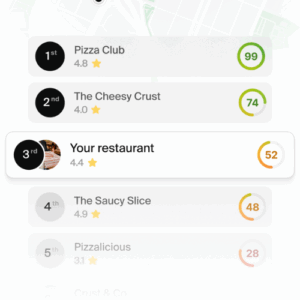Before You Go: Setting the Stage for a Great Review
Before you even step foot in the restaurant, a little preparation can go a long way. Check out the restaurant’s website or social media pages to get a feel for their ambiance, menu, and price range. Browsing restaurant reviews on platforms like Yelp, TripAdvisor, or Google Maps can give you insights from other diners and help manage expectations. Decide what you’re looking for – a romantic dinner, a casual family meal, or a quick bite – and choose a restaurant that aligns with your needs.
During Your Meal: Observing and Evaluating
Once you’re at the restaurant, pay attention to the details. Note the atmosphere, the service, and the overall cleanliness. How promptly were you greeted and seated? How attentive and knowledgeable was the waitstaff? When your food arrives, take a moment to appreciate the presentation. Consider the flavors, textures, and temperatures of each dish. Don’t hesitate to ask questions about the ingredients or preparation methods.
Focus on the Food
The heart of any restaurant review lies in the food. Describe the dishes you tried, highlighting what you enjoyed and what could be improved. Be specific about the flavors and textures, using descriptive language to paint a picture for your readers. Were the ingredients fresh and high-quality? Was the dish cooked to your liking? Did the flavors blend well together?
Consider the Service
Service plays a crucial role in the dining experience. Was your server friendly, efficient, and attentive? Did they handle any issues promptly and professionally? Consider the pacing of the meal – was it rushed or relaxed? These details can significantly impact your overall impression of the restaurant.
After Your Meal: Crafting Your Review
A well-written restaurant review should be balanced and informative. Start by summarizing your overall experience. Mention the specific dishes you tried and describe their strengths and weaknesses. Offer constructive criticism, focusing on areas where the restaurant could improve. Back up your opinions with specific examples and details. Remember, your goal is to provide valuable insights for both potential diners and the restaurant itself.
Be Specific and Objective
Avoid vague statements like “The food was good” or “The service was bad.” Instead, provide concrete examples. For instance, “The steak was perfectly cooked and seasoned, with a melt-in-your-mouth texture,” or “The server forgot our drink order twice and seemed overwhelmed.” Objectivity is key. Even if you had a negative experience, try to present your feedback in a neutral and constructive manner.
Choosing the Right Platform
Several platforms allow you to share your restaurant reviews, including Yelp, TripAdvisor, Google Maps, and Zomato. Choose the platform that best suits your needs and audience. Consider the restaurant’s presence on different platforms as well. Your review will have a greater impact if it reaches the intended audience.
The Impact of Your Restaurant Reviews
Your restaurant reviews can have a significant impact on both diners and businesses. For diners, they provide valuable insights and help them make informed decisions about where to eat. For restaurants, reviews offer valuable feedback and can help them improve their food, service, and overall dining experience. By taking the time to write thoughtful and informative restaurant reviews, you contribute to a more transparent and informed dining landscape.
Ethical Considerations
Always be honest and transparent in your restaurant reviews. Avoid exaggerating or fabricating details. Remember that your words can have a significant impact on a business. If you had a particularly negative experience, consider contacting the restaurant directly before posting a public review. This gives them an opportunity to address your concerns and potentially rectify the situation.
Conclusion: Become a Savvy Restaurant Reviewer
Writing effective restaurant reviews is a skill that develops over time. By following these guidelines and focusing on providing valuable insights, you can become a trusted voice in the culinary community. Your restaurant reviews can help fellow diners discover hidden gems, avoid disappointing experiences, and ultimately contribute to a richer and more vibrant dining scene. So, the next time you dine out, take the time to share your experience – your insights matter.


